Back on the terror train! Last episode was definitely a stunner – it started off with its usual slow-boiling, atmosphere-heavy thriller antics, but ended in a triumphant flight from the cops, from the city, from the world altogether. This is a show about abandoned people – people who’ve been given up because they either don’t fit into or are unwanted by a fairly rigid social system. In response to this assault on identity by the world they inhabit, Zankyou seems to spend equal time exploring both Fight and Flight. Lisa initially tries to run from her world, to get “somewhere outside it” – and episode four’s conclusion was a gorgeous articulation of this instinct. But you can’t really escape the world – no matter where you run, you’re still living within it. And so Nine and Twelve seem to have their own plan – either destroy the world that has abandoned them, or at least make some kind of statement against it. And against both these choices, there is constantly dangled the desire for human connection – apparent in Lisa’s story, but also evident in the increasingly personal games our young terrorists are playing with Shibazaki. That may ultimately point to a way out that doesn’t require destroying the world altogether.
Incidentally, one of my favorite details from last episode was the offhand mention of “fake IDs from Russia or China” that allowed the terrorists to gather the resources for their plot. This is generally a very tightly focused story, and the scale is “our young terrorists, Lisa, and Shibazaki versus the inescapable system they are facing in Japan.” However, that one throwaway line gestured at the exact same problem on a much larger scale – the Japanese system of justice and peace versus a world community that is unwilling to play by the same rules. It seems that even if you play within the rules of this story’s general system, you’re still a victim of a larger truth – even Japan itself can’t dictate the terms of how its society truly functions.
I’ll avoid going further on that thread for now unless the show actually engages with it, but I’m excited to see whichever direction this story chooses to go. Let’s get back to it.
Episode 5
2:29 – I feel like this is one of the first times we’ve actually gotten a decent look at this space. Normally we get very narrow shots or night shots, but now that Lisa’s here, we’re allowed to actually inhabit it. Not surprising, since the show very often positions the viewer in Lisa’s perspective
2:37 – Lighting etc. I won’t point it out every time, it’s just a good thing to keep in mind for this show. Most shows just value “clarity” and so level out lighting, but here, the much more stark lighting can serve a dual purpose of leaning more towards naturalistic framing while also working as a thematic conceit. A neat trick
2:44 – Nine always ends with the pragmatic point that her existence might put their plans in danger, but he also always includes the much more emotional “she’s not one of us.” This fits his general actions – his choices are predicated on underlying feelings of emotional distrust and resentment, which he then frames in overtly(/superficially) logical terms and decisions. Kind of like a lot of internet people!
3:06 – Alright, I said I wouldn’t point it out every time, but goddamn I love this shot/line combination. Almost the entire frame is filled with a bright, sunlit rooftop, but our forgotten protagonists are consigned to the darkened fire escape in the corner
3:16 – So dramatic, Nine. Like with the finale of last week’s episode, the dialogue always pushes a little too far, always tugs against the realism of the visual framing. On the one hand, that’s a pretty common thing for anime – melodramatic presentation of grounded emotions is pretty much a building block of the medium, from Utena and Eva on down. But on the other hand, it really works for the kind of romantic, fatalistic attitudes I’m sure these kids all possess. They build their emotions into entire realities, and a well-crafted show can make those personal realities ring true for us
3:50 – Twelve has quite the sense of humor
3:59 – Another great shot. Nine from Lisa’s perspective, the king of the shadows
4:20 – The summer heat’s generally portrayed as oppressive, but oppressive to whom? The biggest reference to it so far has been Shibazaki’s dislike of it, trailing back to his feelings of childhood isolation
4:44 – Having Lisa around kinda instantly humanizes this guy, since his ominous declarations come off as simply petty when applied to her
5:07 – I like that our main characters’ counterattack against the police was basically an expression of treating them like children, given how the police force’s attitudes have been expressed. People want to be heard and respected
5:16 – Even in this room, Shibazaki sticks to his analog information
5:46 – I love the little physical detail of him misjudging the extinguisher’s weight
6:02 – They’re really slow-rolling her reveal, huh. I like that her outfit is essentially a school uniform – she’s represented as a child, and to them she would be one, if she’s the same age as our two vigilantes. Once again the police are forced to acknowledge someone they would not normally respect to actually engage with the shadow world. That actually goes double this time, since it seems clear she herself has escaped this world for a larger one (moving to the United States, presumably) before coming back of her own accord, an instrument of the machine
6:22 – I would watch this sitcom
7:08 – They’re making Lisa pretty adorable this episode
7:20 – And here’s the point, and what she’s doing pretty much automatically – making this a kind of home. Nine basically wants to meditate on his outsider resentment and constantly lash back at the society that’s rejected him – someone like Lisa, who seems content to live outside of it if she can live outside it with other people who accept her, is a kind of dulling force for his goals
8:54 – I like the young officer’s arc. He’s been raised in and accepted by the system, and initially has total scorn for Shibazaki, but he’s reaching out. Pretty standard stuff, but it works, and shows these organizations are actually collections of people, not monolithic forces of stagnation or evil
9:18 – And once again, the riddle is an attempt to make a specific connection. Perhaps this is how Nine expresses his desire for connection. An interesting way to make friends
10:41 – And yeah, they’re really going there. This show is not pulling its punches
11:18 – Yep
12:09 – The “Rising Peace” Organization, formed to promote engagement between the citizens and government. A pretty fitting name and purpose. This show is about internal unrest, about people that don’t feel represented by their society/government, and lash out at it. Not surprising that the government would frame their suppression of this instinct as a call for peace, immediately setting the dissidents as the manic aggressors
12:20 – And of course Shibazaki immediately pushes back against this framing of unrest as “just craziness from people who want attention.” It’s a reductive framing device you see all the time these days – from people protesting murderous police action in the United States to those protesting the class rigidity of modern capitalism abroad, the political apparatus will always frame unrest as children, as crazies, as Others. Dehumanizing the disenfranchised prevents people from realizing they’re all disenfranchised
12:30 – Beautiful shot
13:09 – I like the THEY LIVE-ness of this shot here – that billboard might as well be a “CONSUME” sign in this context. I assume the network breakdown is the result of our new challenger – she knows them, and thus knows they’re bluffing, and figures they’ll reveal themselves if forced to. This is quite an expression of the power society actually does wield – even as they fight it, they are forced to use its tools
13:58 – Nice shot
14:13 – Even the police have to accept they are a fairly low rung in this system
15:04 – On the one hand, this is an insane move by the police, that’s only really happening because this is a somewhat heightened version of reality (in both a “this is what thriller-police do” sense and a “this is what police in a story about the dehumanizing nature of modern society do” sense). On the other hand, it was almost equally crazy of Nine to go with this plan – it’s likely reflective of the almost personal degree of trust he’s placed in Shibazaki. But Shibazaki’s just as tethered as he is
17:52 – Another nice shot. That whole sequence where Nine realizes who’s toying with him was also very nicely done
19:03 – This show’s soundtrack is so good! Man, this show is just a gem in all sorts of ways
19:46 – Absurdly charged imagery. No music, as it should be
21:15 – Yep
And Done
Holy shit does this show know how to do a finale! Actually feeling pretty shaken by those last few minutes – that was tense, powerful, frightening stuff. They’re just kids who want to make a statement, but they’re putting lives at risk just so the machine will pay attention to them. That’s not a gamble they can ever win – individual police officers might play along, but they can’t hold society hostage against itself. Now that they’re up against an opponent who is willing to call their bluff, what can they do?
This show can’t possibly have a happy ending for Nine and Twelve – or at least, not one they would originally have wished for. They might have slightly more power than Lisa, but they’re just as trapped. They can’t go over the top of society at large – they either have to find personal peace within it or break themselves crashing on its walls.
This show makes me kinda sad. It’s a good kind of sad, though. It’s a good show.

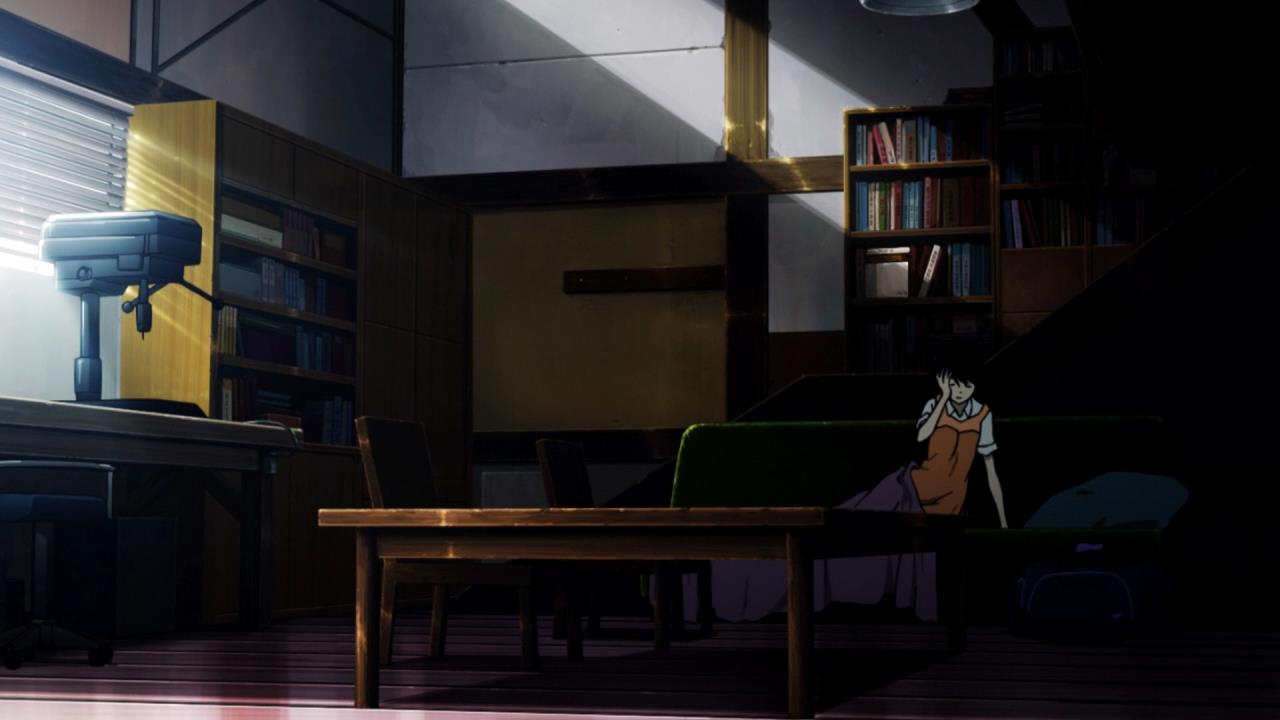
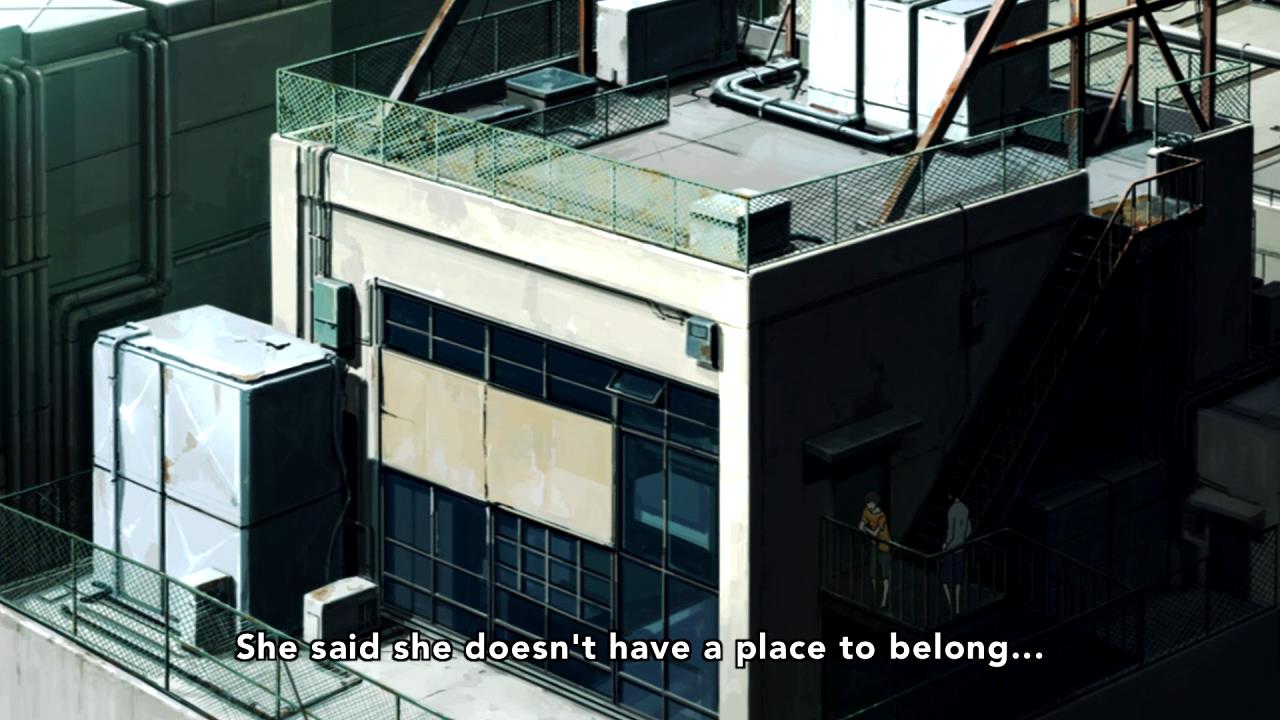
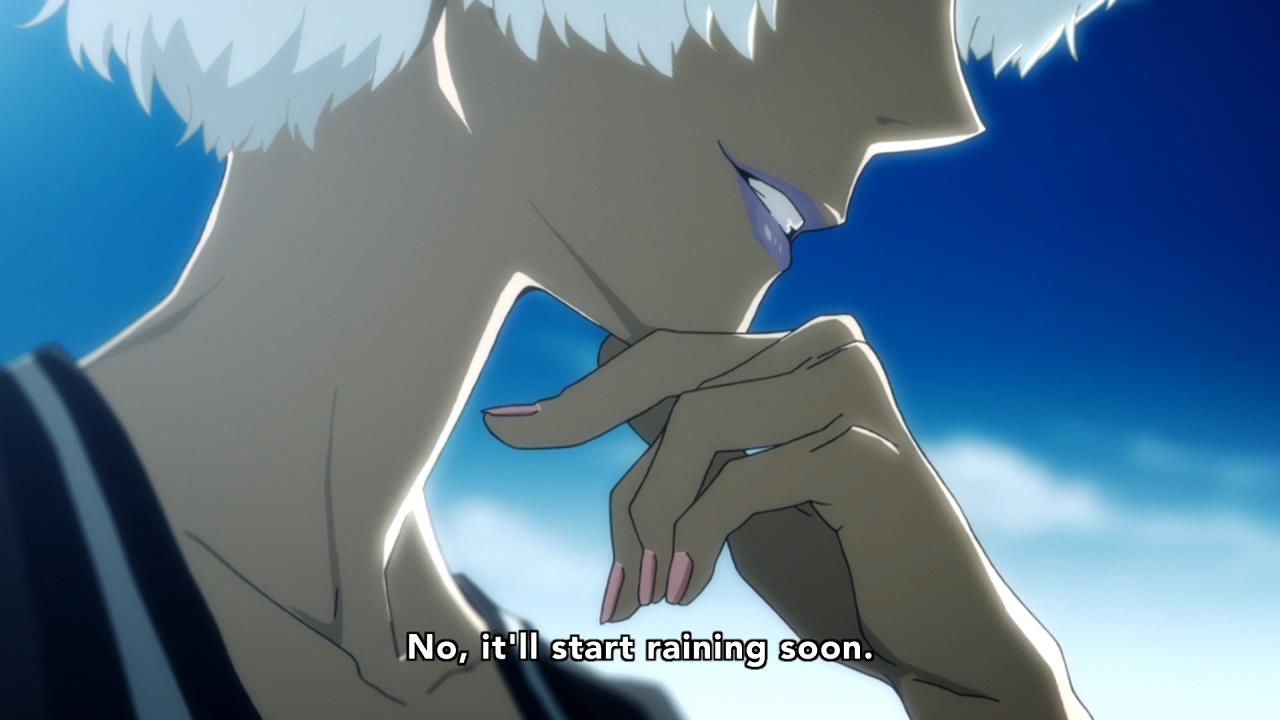
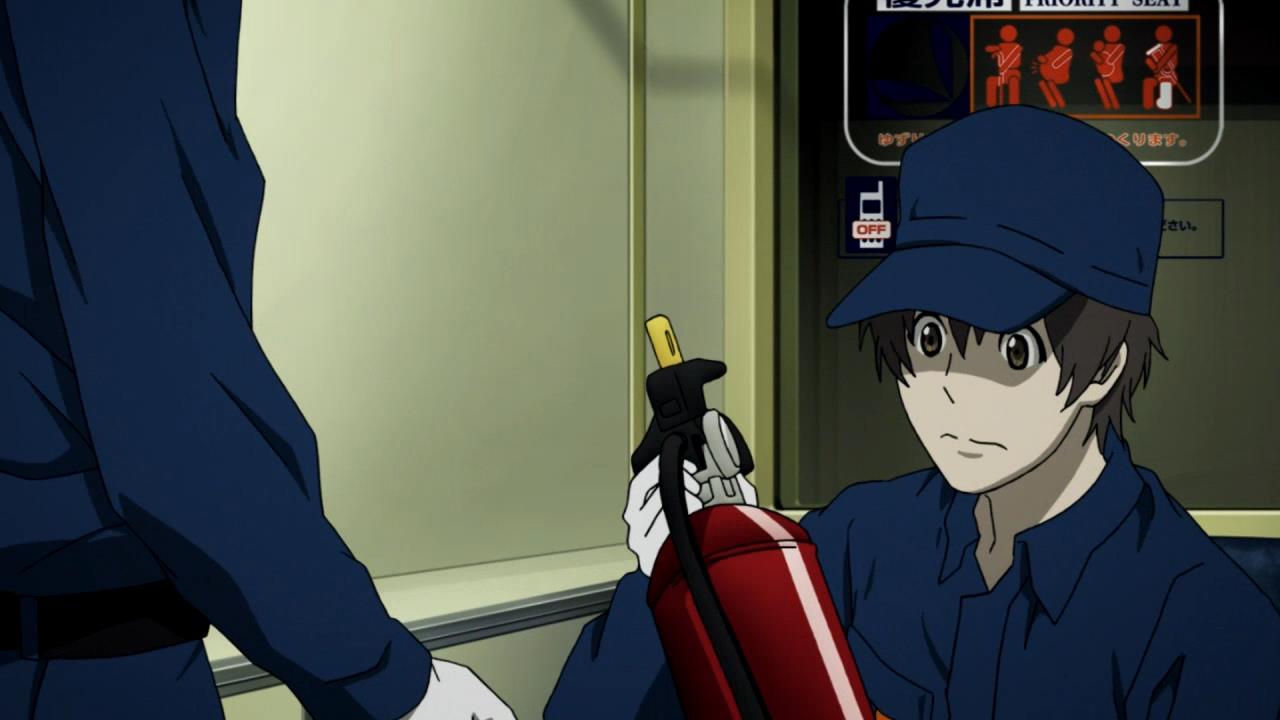
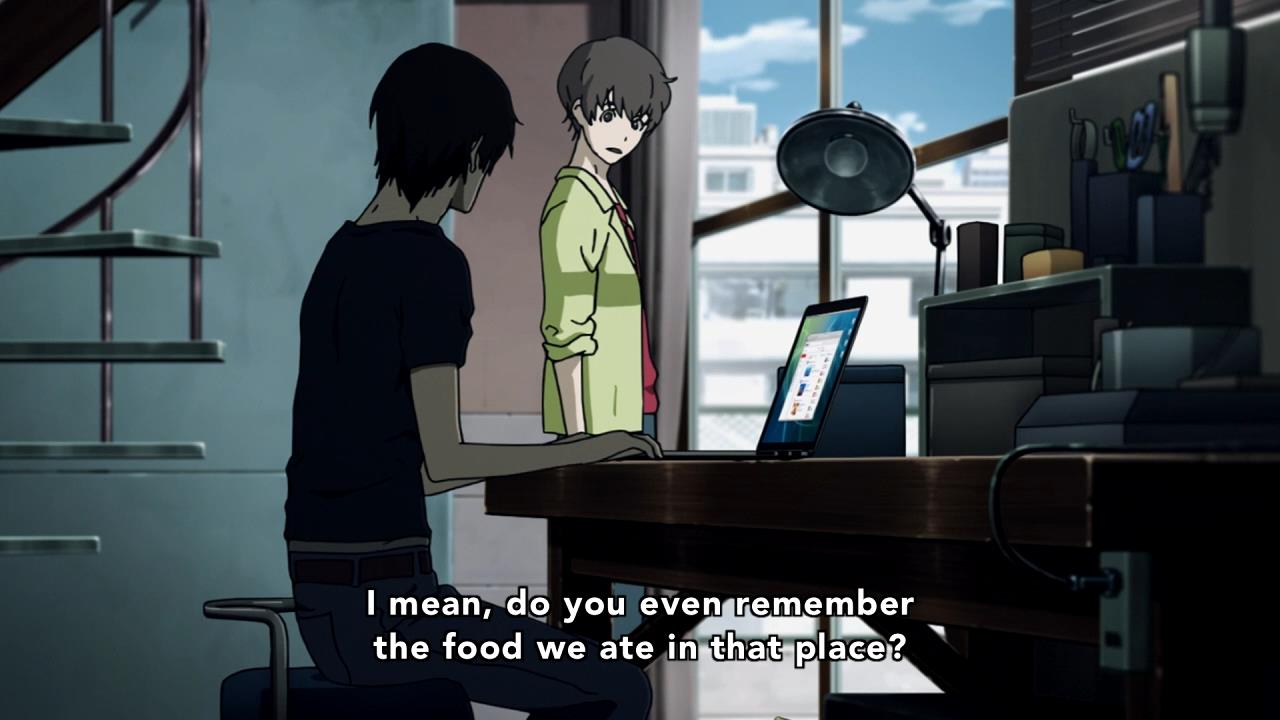
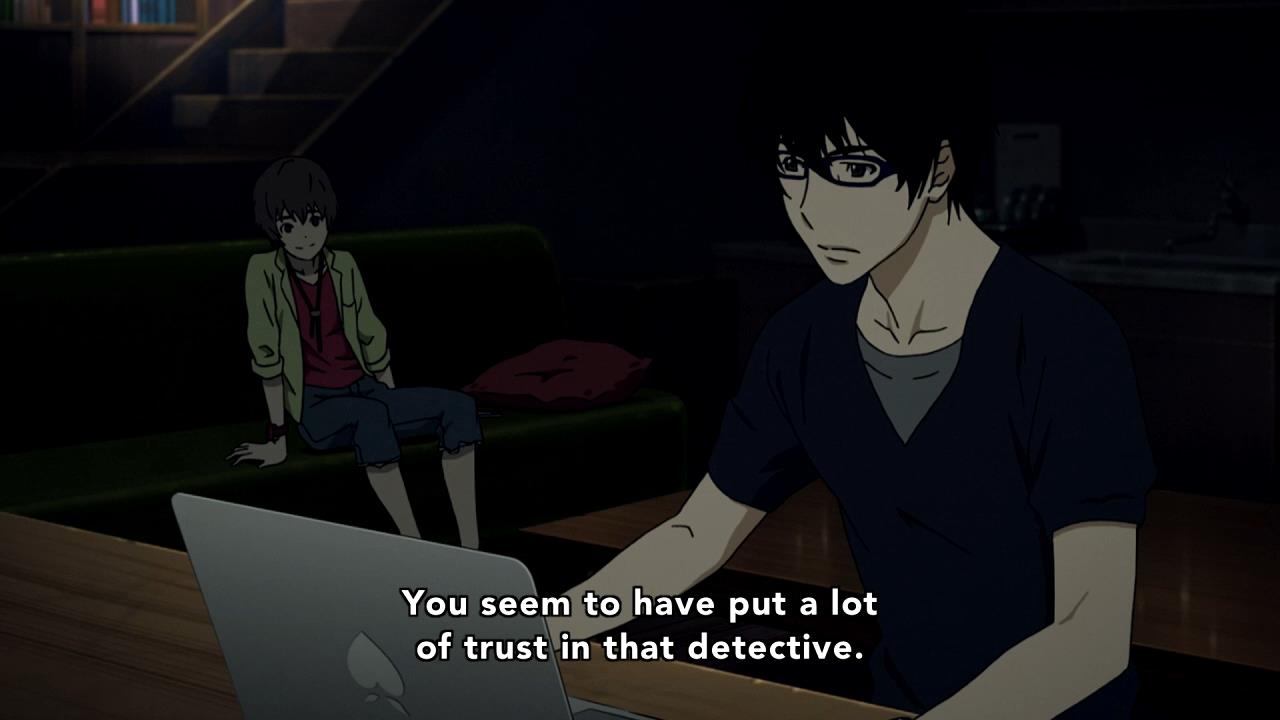
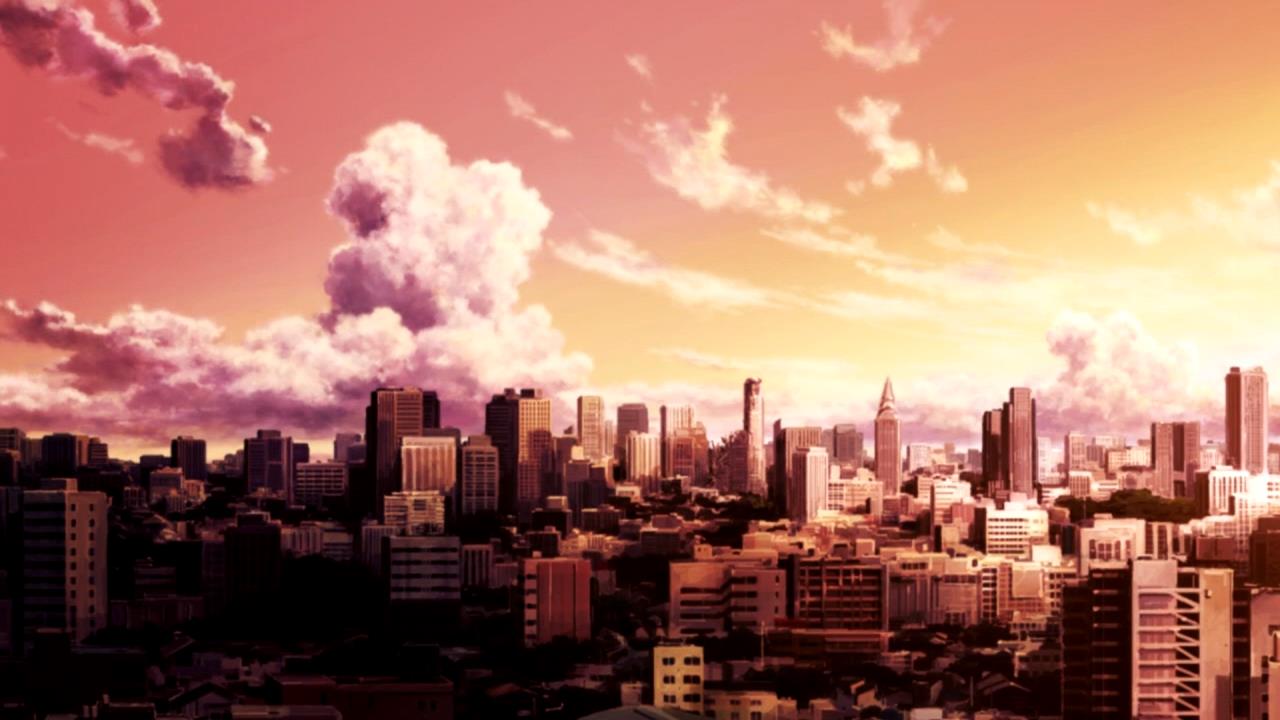

The direction and composition in this work are so ludicrously well done. However, I can’t help but feel like it has simply overshadowed the other aspects of the show. A lot of things just feel unrealized or empty to me so far, but that may be because there hasn’t really been any time for any grounded weight to be established in the show yet. I’m really impressed with what we’ve gotten so far, but I’m still waiting for that definitive punch in the narrative. Looking forward to seeing how they’re going to deliver that to us, and I’m sure it will be spectacular.
I’d agree that the aesthetics are kind of “overshadowing” the narrative, but I wouldn’t consider that necessarily a bad thing. I think Zankyou is just intentionally conveying a great deal of its purpose through its visual storytelling, much like, say, Aku no Hana.
Such a great episode! Previous episodes were none too shabby either of course, and I distinctly remember thinking that episode 4 was particularly good, but this most recent one… stunning. Definitely my favourite of the series to date.
Yeah, this one was a new height. Though I’ve gotten that gut-punch, stomach-falls-out feeling from the ending of both of the last two episodes. This show is definitely getting to me…
I know I don’t pay attention to anime as well as I should while watching them, I leave that up to you to do for me and then read about what I missed later. But I cannot help but notice how amazing the soundtrack is in this show. I really can’t remember the last time I thought about how much of an impact the music is playing into how I feel about a show as much as this one is doing right now.
Yeah, it’s phenomenal. They’re really demonstrating how much a soundtrack can do to elevate a dramatic sequence.
I think you alluded to it on twitter, but were you thinking about the Phone Off sign at 5:46 as foreshadowing? And I don’t really know what to make of this beyond the surface, but blue (Nine) + red (Twelve) = purple (Five)?
Last time, you mentioned the ad break reflecting the show’s use of light and shadow and I think this episode did something similar, showing the broken up kanji, right after talking about interference: http://i.imgur.com/C8tfy90.jpg
“This show can’t possibly have a happy ending for Nine and Twelve – or at least, not one they would originally have wished for.”
To be honest, I’m not really sure if they deserve a happy ending or not at this point. Sure, it’s understandable that they are angry at society due to being rejected by it, but I don’t really see that as a justification for them to do the things they do – risking people’s lives to express their dissatisfaction. I’m curious to see what happens to them.
Anyway, great write ups!
Five reminds me of a sort of fusion between Death Note’s Near (and the parallels between their institution and Wammy’s orphanage are certainly there) and Kill la Kill’s Ragyo. Oh well, we’ll see.